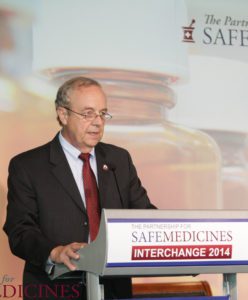Drug Importation in Connecticut: An Overview

Synopsis:
The Connecticut legislature has not yet advanced bills that have been introduced to legalized importation of drugs from Canada. However, in 2019 the state budgeted funds for the Department of Consumer Protection to hire a project manager to submit a request for approval for a Canadian Prescription Drug Importation Program to the federal Secretary of Health and Human Services.
Current status:
Budget documents indicate that Connecticut will be submitting an importation plan to the Department of Health and Human Services in 2020 or 2021.
How should we evaluate this program?
The program hasn't started yet, or even been designed, so there's no way to measure whether it saved money or kept patients safe, both promises made at the time of passage. However, the 2003 Medicare Modernization Act contains requirements for safety requirements built into any such program.
Official actions and statements
Connecticut has made no official statements regarding importation.
Background / resources
Learn more about
- The Drug Importation Debate
- Fake Medicine in Connecticut
- The Importance of U.S. Closed Drug Supply Chain
Testimony Opposing Importation
- Testimony of Shabbir Imber Safdar, PSM Executive Director at Connecticut's Health Care Affordability Informational Forum, November 14, 2019
Op-eds from the Experts
In this August 9, 2018 editorial for RealClearMarkets, Bill Martinez reminds Americans that the FDA hasn’t yet approved importation for a reason: it’s impossible to open the floodgates to foreign drug imports without cutting corners on safety.
While the Trump administration works to stem the raging epidemic of opioid addiction, Sen. Bernie Sanders, I-Vt., has a plan to make it worse. He calls it the Affordable and Safe Prescription Drug Importation Act, S. 469. This legislation would open our borders to the free flow of drugs – all drugs – from Canada and other countries.
It would be more accurate to call it the Unsafe Opioid Importation Facilitation Act – and we can’t afford it. Sanders is still peddling the bogus line that importing prescription drugs from Canada is the ticket to lower health-care bills for Americans. Not only has Bernie’s tonic been exposed as a fraud, it is downright deadly. Read more…
In a June 7, 2018 editorial for The Hill, Former FBI deputy assistant director and Pharmaceutical Security Institute President Thomas Kubic argues that current sentences and penalties are not strong enough to deter criminal drug importation: “It boils down to this, if an entity — be it an organization or person — opts to engage in activities involving illegal distribution chains, there should be consequences, often certain, swift, and overwhelmingly punitive.”
By approving the wholesale reimportation of U.S. prescription drugs from Canada, the Vermont Legislature passed an illegal measure that will not lower drug prices. Instead, it will subject Vermonters to public health risks and new taxes to defray an inevitable federal lawsuit.
A nonprofit executive wrote in this April 20, 2018 editorial that America needs to concentrate on keeping counterfeit drugs, including those made with fentanyl, from crossing our northern border just as much as the southern…
In a February 16, 2018 editorial for the Salt Lake Tribune, BioUtah President and CEO Kelly Slone explained that importing medicines from Canada would “open the door to dangerous counterfeit medicines,” and “dampen job growth in Utah’s vibrant, dynamic life-sciences industry.”
In this editorial, which was published in the Deseret News on February 11, 2018, economics professor Dr. Kristina Acri warns that drug importation will expose Utahns to dangerous counterfeit drugs.
“After more than two decades of studying the economic and health impacts of drug importation,” she writes. “the verdict on bringing drugs in from Canada is clear and consistent: It’s a risky gamble and one too dangerous to take. Experts know that preventing the introduction of dangerous counterfeit medicines cannot be guaranteed.”
This editorial by Dr. Yanira Cruz was published in Morning Consult on January 18, 2018. Cruz, who is the president and CEO of the National Hispanic Council on Aging and holds a doctorate in Public Health, writes that,
“For Hispanics, the notion of opening up our borders for imported drugs presents a particularly acute threat. Latino families are already afflicted with a ‘perfect storm’ of comparatively poor health and limited access to health care resources. Adding an increased threat of counterfeit – and potentially dangerous – drugs to that mix would be nothing short of devastating.”
Liz MacMenamin’s editorial was published in the Reno Gazette Journal on November 1, 2017. MacMenamin is is vice president of government affairs for the Retail Association of Nevada…
Oklahoma Pharmacists Association Director Debra Billingsley published an editorial on October 21, 2017 opposing drug importation proposals:
Now is not the time to allow foreign unlicensed pharmacies to start dispensing drugs into Oklahoma. It would just make it easier for drug traffickers or crooked providers to hurt our citizens.








